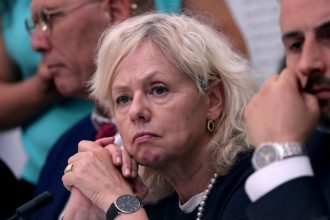The Chartered Institute of Transport Administration of Nigeria has renewed calls for the establishment of a unified national transport policy, the deployment of smarter mobility systems nationwide and the creation of a new national authority to regulate the road transport subsector.
The institute made the call on Wednesday during the public presentation of the communique issued at the end of its 7th National Transport Conference held in Abuja from November 4 to 6, 2025.
The briefing, held virtually on Wednesday, brought together transport professionals, regulators, policymakers and members of the private sector.
Speaking at the unveiling, the President and Chairman of the Governing Council, Segun Obayendo, said the country could not achieve global competitiveness without a coherent national policy that harmonises all transport modes into a single integrated framework.
“Nigeria needs a National Integrated Transport Policy that brings air, land and marine transport under one coordinated governance structure.
“Without alignment, we will continue to experience inefficiencies, duplication of efforts and poor service delivery,” he said.
Obayendo added that CIoTA was ready to lead the technical work required to support states and the Federal Government in drafting and implementing such a policy.
Also speaking, the Minister of Transportation, Senator Said Alkali, who delivered the conference keynote, reaffirmed government’s commitment to modernising the sector.
He acknowledged CIoTA’s contribution to the drafting of the newly approved National Land Transport Policy and the Marine and Blue Economy Policy.
“These policies are a milestone. What we need now is synergy and consistency so that Nigerians can benefit from safer, more efficient and more affordable transport services. CIoTA has been a strong partner in this journey,” the minister said.
The communique noted that only three states—Lagos, Kano and Kaduna—currently had state transport policies, describing the trend as inadequate for the scale of mobility needs across the country.
It urged other states to develop transport policies aligned with national guidelines.
The Chairman of the Conference Planning Committee, Prof. Samuel Odewumi, described the resolutions as a forward-looking blueprint that places innovation at the centre of transport development.
“Nigeria’s transport architecture must shift from outdated manual operations to intelligent mobility systems that support safety, efficiency, revenue optimisation and global best practices,” Odewumi said.
A major highlight of the communique is CIoTA’s plan to collaborate with the Federal Ministry of Transportation to deploy Smart Mobility and Intelligent Transport Systems nationwide.
The systems are expected to enhance traffic management, improve public transit operations and strengthen monitoring of cargo movement.
The institute argued that the adoption of intelligent transport technology has become critical given the rise in urban congestion, transport crime, road crashes and data management challenges affecting mobility.
According to the communique, “Nigeria must modernise its transport operations through GPS-enabled tracking, CCTV networks, biometric verification systems, digital ticketing, cybersecurity devices and mobile app-based safety tools.”
Another key recommendation is the establishment of a National Road Transport Management Authority to regulate and coordinate the road transport subsector, which accounts for over 90 per cent of passenger and freight movement nationwide.
The proposed authority, CIoTA said, would function similarly to NCAA for aviation, NIWA for inland waterways, NRC for rail, NIMASA for maritime/ international shipping.
The institute argued that the absence of a dedicated regulator for the road subsector has led to weak coordination, poor safety compliance, unregulated operators and infrastructural decay.
The conference also emphasised the importance of linking ports to the national rail network to support the use of inland dry ports and activate eastern seaports. It called for increased investment in technology-based security systems to combat vandalism, piracy, road crime and drug trafficking across transport corridors.
Obayendo reaffirmed CIoTA’s readiness to partner with government at all levels to drive reforms.
“Transport is the backbone of economic development. We are committed to providing the expertise, training and advocacy required to reposition Nigeria’s transport system for global competitiveness,” he said.
A total of 240 new members were inducted during the conference.
PUNCH Online reported that the CIoTA had warned that the Federal Government’s $1tn economy target by 2030 may remain a mirage unless urgent reforms are carried out in the nation’s transport sector.
CIoTA President, Obayendo, stated that, “Transport should be treated as a profession. As long as there are no regulations and enough policies guiding our conduct in the transport sector, we may not be able to take this country to that promised land of a Gross Domestic Product of one trillion.”









